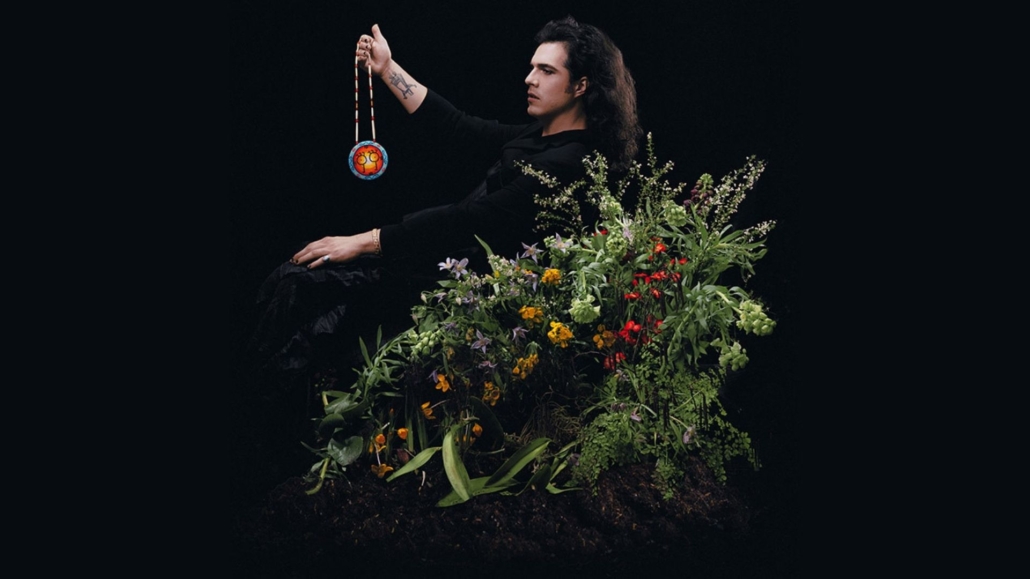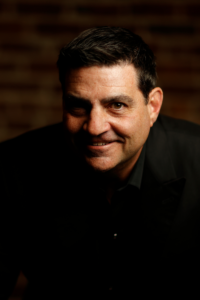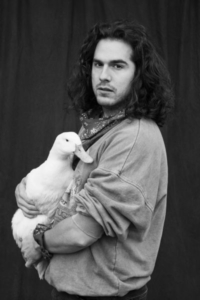Some years ago, while researching the language and history of his people, Jeremy Dutcher made an astonishing discovery. Shelved in the basement of Ottawa’s Canadian Museum of History, he found a treasure trove of wax-cylinder recordings, made in the early part of the 20th century, that documented the songs and stories of the original inhabitants of New Brunswick’s Saint John River valley. These ancestral voices provided the genesis for his 2018 Polaris Prize–winning album, Wolastoqiyik Lintuwakonawa.
Dutcher is Wolastoqiyik, and in his language, Wolastoqey, the Saint John River is the Wolastoq. He’s also a classically trained tenor with an especially beautiful voice. Bridging the very distinct worlds of Western art song and the Indigenous arts is his life’s work, and on Wolastoqiyik Lintuwakonawa he decided to start by foregrounding those century-old recordings, presenting them in beautifully restored form and then arranging them for voice, piano, and chamber ensemble.
The project continues to grow. On his second full-length recording, Motewolonuwok, as well as in his recent concert appearances, the arrangements have grown to encompass orchestral forces while at the same time his piano and songwriting are coming more to the fore. He has chosen to sing some songs in English, or in a mixture of English and Indigenous languages. But the intent remains the same: to celebrate the enduring strength of Wolastoqiyik culture, its resilience in the face of colonialism, and the ongoing gifts he’s received from Indigenous knowledge-keepers, including his mother Lisa Perley-Dutcher, who recently opened the first Wolastoqey immersion school in New Brunswick, and Wolastoqiyik song carrier Maggie Paul, his acknowledged musical mentor.
“We go to many different kinds of schools in life, I think,” Dutcher muses. “Some of them have walls and some of them are a little less bounded. When I was studying Western art music or classical music, however we want to talk about it, that form of study was really beautiful and I learned a lot. But I would be doing discredit to my teachers in my Wolastoqiyik community, people like Maggie Paul, if I did not talk about them. In our community, people are put in charge of songs, you know, and so she passed me a lot of songs, but also philosophies on how to sing. She taught me a lot, even before I got to school. And when I was at university, studying that Western art music, I was also thinking about all the ways that the beauty of our music—and by that I mean the kind of melodies that come from our folk tradition—has often been misused and mistreated in the classical Western canon.
“So, as a contemporary person, how can I speak to that space, to that lack of accurate representation of our culture in Western music? That’s kind of where that first album came from: thinking about how to marry those elements, and how to have a conversation across cultures.”
With Motewolonuwok, the conversation is deepening. “It’s not directly coming from or inspired by those ancestor recordings,” Dutcher explains. “That said, you know, that song tradition and those ancestor records are still very much part of the new record as well. When I was in the museum, doing that initial research, it wasn’t just the songs and the actual recordings that I came up against, or came up with. There were drums and clothing and objects—lots of different material culture—and also stories and quotes from ancestors. So while this new record starts with the voice of one of those ancestors, that aspect is woven in in different ways, and maybe less direct ways.”
Motewolonuwok’s opening track, “Skicinuwihkuk”, which will also serve to introduce Dutcher’s Victoria Symphony concert, is very much a mission statement. The title translates as “Indian land”, more or less literally, and Dutcher sees it as something of a riposte to the pro forma land acknowledgments that have become a part of concert culture, at least here in British Columbia.
“It’s good to say that and to speak it, but as an East Coast person coming to the West Coast, that was the first time that I’d even heard somebody acknowledge place or space or ancestry or that kind of thing,” Dutcher points out. “But what’s needed is to go further than that and engage with the languages from the place, you know. The words are beautiful and important, but that needs to be backed with action—and we’re seeing it happen, but we need to keep seeing it.”
The final item on Dutcher’s Victoria program, “Honor Song”, is a symbolic return to Wolastoqiyik land. “For us on the East Coast, that’s like our anthem,” the singer says. “You can’t have a gathering without ‘Honor Song’, so we have to close it out that way.
“I’ve never put it on a record, but it’s a very important song for me,” he continues. “Since I was a young person I’ve been singing that song, and I even got to duet it with Yo-Yo ma a couple of years back, which was pretty life-changing.”
There’s a definite arc to the program, one that begins and ends with language and the land. “This show’s about taking a journey,” Dutcher says. “I tell a lot of stories, and I probably annoy the conductors a lot, because it’s usually their show; they get to run it. But sometimes I like to stop the show and really have a conversation with the audience. It’s an opportunity to keep telling stories to each other.“
Some of the stories that might emerge will likely engage with queer as well as Indigenous Identity. Dutcher identifies as two-spirit, and recognizes his sexual and artistic forebears within the European art song tradition. “You don’t have to look very far!” he says, laughing. “There’s been a lot of scholarship and reading into the implicit and overt queerness in that music, up to Benjamin Britten and a lot of the American song composers of the 20th century, too.
“So, for me, weaving who we are into our music is the most natural thing. You have to really work to do it, and yet for me it’s been about balancing all of these stories one looks to tell. There’s a multitude of places in which those conversations can be had, and I think I’m trying to expand into different conversations and express different sides of myself as an artist and a person.”
More than ever, Dutcher adds, his work is a means of “reaching toward people”. And what’s the best way to accomplish this? “Telling stories!” he says. “Telling stories and singing songs.”
Notes by Alex Varty



 Sean O’Loughlin, conductor
Sean O’Loughlin, conductor Jeremy Dutcher, piano / vocalist
Jeremy Dutcher, piano / vocalist